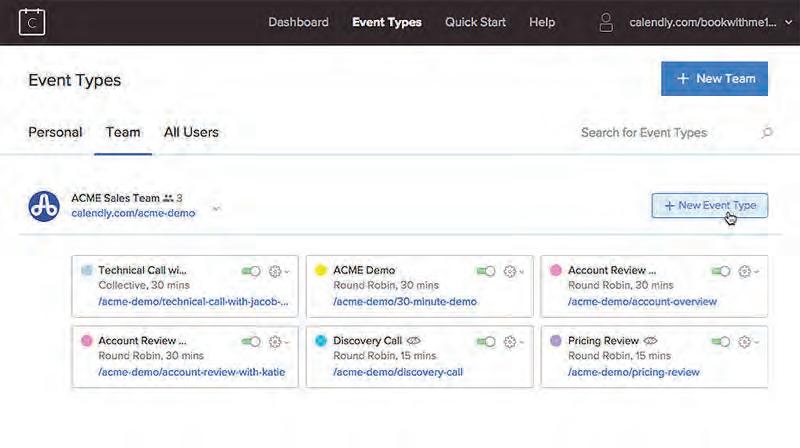
6 minute read
Nigeria’s Fintech Scene Booms
Nigeria’s Fintech Scene Booms Despite Economic Woes
By Alex Irwin-Hunt
THE COVID-19 PANDEMIC, oil price slump and civil unrest have hammered Nigeria’s economy this year, but the tech start-up scene in Africa’s most populous country has continued to thrive.
Yabacon Valley, an area of Lagos which took its nickname from the US tech hub, hosts hundreds of banks, IT companies and start-ups.
The number of internet users in the country is surging, hitting 140 million people in June. Nigerian start-ups are capitalising on this shift, raising $747m last year, according to Partech African.
Leading the way are fintech firms, as entrepreneurs look to serve the 40% of Nigerians that are remain unbanked and meet gaps in the market that have not been met by incumbent providers.
Tunde Kehinde, chief executive and co-founder of Lidya, a Nigerian start-up providing loans to small and medium-sized enterprises, said at a recent TechCrunch event that “fintech is really top of mind right now”.
It’s a really exciting time for tech start-ups, Mr. Kehinde added, as they can “operate with a blank slate”, developing products and services for African consumers without being held back by “legacy infrastructure” or technology. Since being founded in 2016, Lidya has expanded to offer its services in four countries outside Nigeria. Other Nigerian fintechs that have drawn investors’ attention, include mobile money service Opay, payment app Palmpay and challenger bank Kuda, which have all raised large sums of money since November 2019.
Most notably, Lagos-based Interswitch received $200m of funding from US payments group Visa to value it at more than $1bn and become Nigeria’s first home-grown unicorn, while another start-up, Paystack, was acquired for a reported $200m by Silicon Valley-based payments giant Stripe.
Africa’s springboard
Aaron Fu, the head of growth at Catalyst Fund, a fintech-focused venture capital (VC) firm and incubator, says that companies can become “incredibly large and successful by only being in Nigeria”, making it the go-to market to expand operations for start-ups founded in other African countries and internationally.
“Nigeria is increasingly becoming the gateway into the African start-up world for most landing into the continent for the first time,” he adds.
The opportunity afforded in the financial services sector is also reflected in foreign direct investment
Nigeria's Leading Fintechs
Fintech Industries Headquarters Founded Last Funding Type
Carbon Financial Services, Lagos, Nigeria 2016 Debt Financing Payments Chipper Cash Financial Services, San Francisco, US 2017 Series B Mobile Payments E-Tranzact Payments Lagos, Nigeria 2003 Private Equity Fairmoney Financial Services London, UK 2015 Seed Flutterwave Payments, San Francisco, US 2016 Series B Developer APIs Interswitch Financial Services, Lagos, Nigeria 2002 Corporate Round (Visa) Payments Kuda Bank Banking, Lagos, Nigeria 2018 Seed Financial Services Lidya Financial Services Lagos, Nigeria 2016 Series A OPay Financial Services, Lagos, Nigeria 2018 Series B Payments Paga Financial Services, London, UK 2009 Series B Mobile Payments PalmPay Financial Services Lagos, Nigeria 2019 Seed Payments Paystack Financial Services, Lagos, Nigeria 2015 Acquired by Stripe Payments, Internet PiggyVest Banking, Lagos, Nigeria 2016 Seed Debit Cards, Financial Services Terrapay Financial Services, Amsterdam, 2014 Venture – Series Unknown Mobile Payments The Netherlands VoguePay Payments, London, UK 2012 Private SaaS, SMS
(FDI) figures. Investment monitor fDi Markets tracked 44 greenfield FDI projects in Nigeria’s financial services sector between 2014 and 2019, making it the most active sector alongside business services during the period.
Interswitch, Nigeria’s ‘poster boy’ fintech unicorn, founded in 2002, decided to revive its VC arm in October 2020 to invest in Nigeria and other African tech hubs as they have matured.
Despite a thriving start-up ecosystem with investment pouring in, Nigeria’s regulatory and macroeconomic climate has room for improvement.
“The frequency and duration of recessions in Nigeria is contributing to concern for most general partners,” said Gozie Chigbue, the director of funds and capital partnerships at CDC Group, the UK’s development finance institution, at a recent
African Private Equity and Venture Capital
Association (AVCA) event.
On top of Nigeria entering its second recession in five years, the business climate still lags its west African peers. In the World Bank’s 2020 Ease
of Doing Business ranking, Nigeria ranked
131 out of 190 countries, held back by poorly developed transport and energy infrastructure, and inefficiencies in both the judicial and dispute settlement systems. www.thebanker.com/Transactions-Technology/
Nigeria-s-fintech-scene-booms-despite-economicwoes


Entrepreneur Feleg Tsegaye Launched Ethiopia’s First Online Food Delivery
Company By Njera Perkins
FORWARD-THINKING INNOVATIONS IN AFRICA are what keeps the continent ahead of the game in leading the future for us all.
Thanks to entrepreneur Feleg Tsegaye, Africa’s momentum in the food space is seeing an uptick after launching Deliver Addis, Ethiopia’s first online restaurant delivery company, Face2Face
Africa (https://face2faceafrica.com) reports.
Tsegaye — who was born to exiled Ethiopian parents in the U.S. — moved to Ethiopia when he was 24-years-old to begin his ambitious business endeavor.
He set up his Addis Ababa-based company in 2015 as both a platform and an app to deliver takeout restaurant food, groceries, and beverages, as well as flowers and books.
According to How We Made It in Africa (www.
howwemadeitinafrica.com), Tsegaye’s reason for creating Deliver Addis was because he didn’t want to learn how to cook, but the mission grew to be much greater than that.
For Tsegaye, launching this new venture was not only a way to generate new jobs in his home country, but also change the structure of dining culture for Ethiopia as a whole.
“What really prompted me to pursue this was the fact that we were creating a completely new industry that did not exist in Ethiopia,” he told How We Made It in Africa. “It’s about getting customers what they want in the convenience of their homes and offices. It’s also about generating business for small and medium enterprises – like restaurants that cannot afford space or a good location – and creating jobs for young people as back-office staff or drivers.” Face2Face Africa reports businesses across Africa that are being operated solely online are quickly becoming more popular with consumers. This is largely attributed to the spread of Internet connectivity across the continent.
Being a pioneer in such an Internet-focused part of the e-commerce sector wasn’t an easy feat for Tsegaye in Ethiopia.
Coupled with power outages, absence of addresses, and the country’s Internet penetration being low at the time of his company’s launch, this business model proved to be quite the challenge.
“Our first internet shutdown was when I was on a flight to the US,” he recalled to How We Made It in Africa. “As an e-commerce business, that’s pretty much the worst possible thing that can happen – and I wasn’t even there when it happened.”
Nonetheless, he managed to prevail and now controls a big share of the market.
According to Face2Face Africa, Tsegaye secured additional funding from the Impact Angel Network back in June to increase Deliver Addis’ capacity and efficiency to introduce new products and services while expanding its market share.
As the company has continued to grow amid the COVID-19 pandemic, Tsegaye has since expanded Deliver Addis’ platform to include an online marketplace, which allows Ethiopian consumers to shop for groceries and other essential items online.
For more information about Deliver Addis, visit
its website (https://deliveraddis.com). https://afrotech.com/entrepreneur-feleg-tsegaye-launchedethiopias-very-fi rst-online-food-delivery-company Photo Credit: Twitter / @fegult










